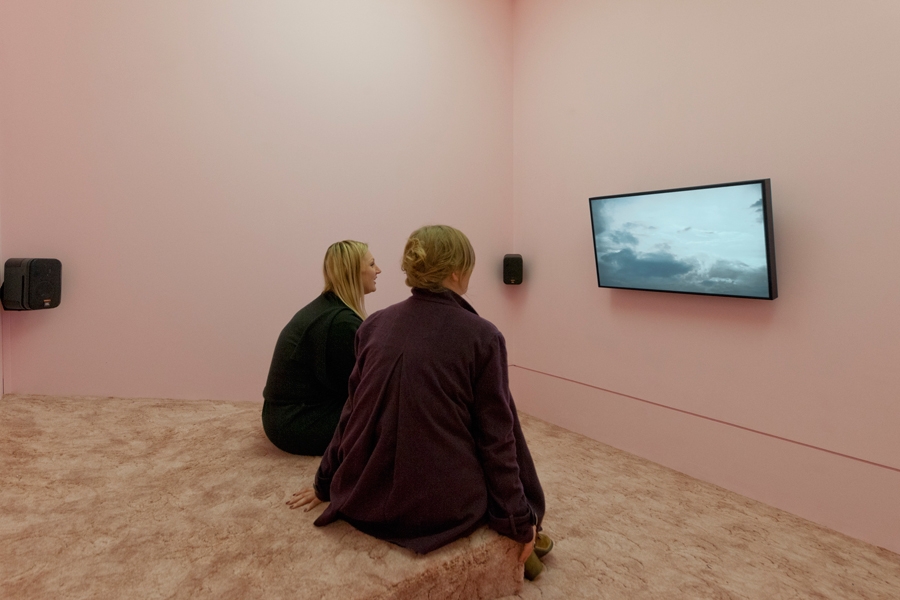After its leery, 1990s adolescence as a rhinestone in New Labour’s crown of ‘Cool Britannia’, the Turner Prize has matured into a respected institution and intermittent mobile vehicle for arts based civic regeneration. This year the franchise has rolled into Derry~Londonderry in Northern Ireland, the UK’s current city of culture, with a participatory and yet curiously restrained exhibition, featuring nominees David Shrigley, Laure Prouvost, Lynette Yiadom-Boakye, and Tino Seghal.
Shrigley’s Life Model (2012) opens proceedings with an installation featuring the sculpture of a lanky, naked male surrounded by the easels and chairs of a life drawing class. Somewhat trumping the expectation he would exhibit a glut of sardonic and surreal punchline art, Shrigley’s idea is that visitors draw the life model and then hang their efforts on the wall.
Disorientation is the order of the day in Prouvost’s Wantee (2013) a chaotic and kooky video installation littered with dirt and oddly deformed ceramic pots and plates. It is strangely affecting in places; frustratingly muddled in others. Elsewhere Yiadom-Boakye’s shadowy display is the most conventional of the four. Spotlit in darkness, her portraits of imaginary sitters appear as romantic apparitions hovering in the gloom.
The Turner Prize is judged on solo exhibitions staged by each nominee during April 2012 through April 2013. But purely on the strength of the above three artists’ Turner displays they’re all level pegging. The same cannot be said of bookies favourite Seghal. Nominated for his ambitious Turbine hall installation These Associations, his Turner exhibition offering is the rather dreary This Is Exchange (2003), a work where gallery assistants engage visitors in conversations about the market economy.
Seghal’s art often works best in an environment where the alienating effects of late capitalism, or the stuffy conservatism of an institutional context have stunted communication. However in a city as gregarious as Derry~Londonderry Seghal’s relational work feels strikingly ineffectual, dated even.
Essentially featuring excerpts from much larger works, Turner 2013 functions like an Oscar night best director show reel. But, rather than a year of standout productions, Turner 2013 fields a selection of competent and safe displays. A clear and deserved winner may be impossible to call, but my money’s on Seghal.
(This review was written prior to the winner being decided).
